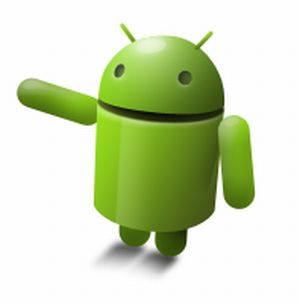Study: Android To Become Top Developer Platform

Google’s Android operating system may become the favoured platform for developers in the next 12 months, according to Ovum
With more than 500,000 applications in the Apple App Store, and what most developers believe to be the best payment platform for mobile web apps, Apple’s iOS platform has the most developer momentum.
Yet Google’s Android operating system figures to edge out iOS in importance among software developers in the next year, according to Ovum.
iOS vs Android
The researcher said most developers it surveyed claimed to support both iOS and Android because those are the platforms boasting the biggest market penetration and reach among users.
These platforms afford developers more opportunities to make money from selling their software and serve ads within applications.
 Android Market has trailed woefully behind Apple in the former category for a number of reasons. The Market’s payment platform was initially poor and Google didn’t provide payment opportunities in many countries until 2011.
Android Market has trailed woefully behind Apple in the former category for a number of reasons. The Market’s payment platform was initially poor and Google didn’t provide payment opportunities in many countries until 2011.
Google has taken steps to fill many of those holes in the past two years, adding carrier billing, in-app payment support and other features. With Android comprising more than 50 percent market share worldwide as of this writing, the Market appears well positioned to challenge Apple’s App Store for developer mind share, figures Ovum.
Ovum’s finding contrasts with that of mobile analytics firm Flurry, which in December claimed application development projects for iOS outnumber those for Android approximately three-to-one. The iPhone 4S helped on this front.
Regardless of who you want to believe is racking up brownie points with developers, the mobile app development market will be a two-horse race between Android and iOS for awhile.
RIM and Windows interest
However, Ovum’s research suggests developers are interested in writing software for both Research In Motion’s BlackBerry OS and Microsoft’s Windows Phone. Yes, the very same platforms that struggled to gain any traction in 2011. In fact, BlackBerry OS lost several points of smartphone market share last year, while Windows Phone 7 treaded water in its infancy.
While Ovum’s finding may seem surprising given the paltry 1 to 2 percent smartphone market share Windows Phone owned through 2011, the platform made a splash at the 2012 Consumer Electronics Show earlier this month, where the Nokia Lumia 900 smartphone tickled phone lovers’ fancies.
Moreover, Nokia may have shipped 1.3 million Windows Phone devices, according to 22 analysts surveyed by Bloomberg.
“The growing momentum behind Windows Phone indicates that Microsoft has managed to convince developers that its platform is worthy of investment; its challenge now is to persuade consumers,” wrote Ovum Research analyst Adam Leach, who added that developers are focusing their efforts on HTML5, which has emerged as the preferred approach to building cross-platform applications.
Even so, most developers are still using Apple’s App Store and the Android Market to market and sell their apps. And they will continue to do so in 2012.